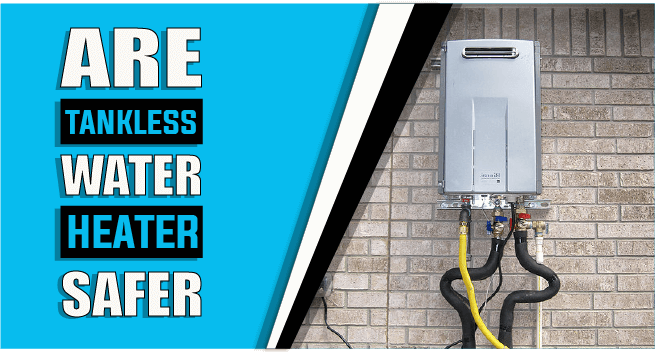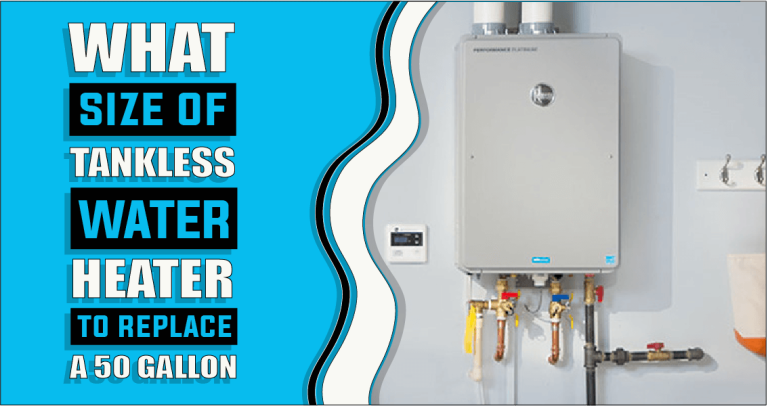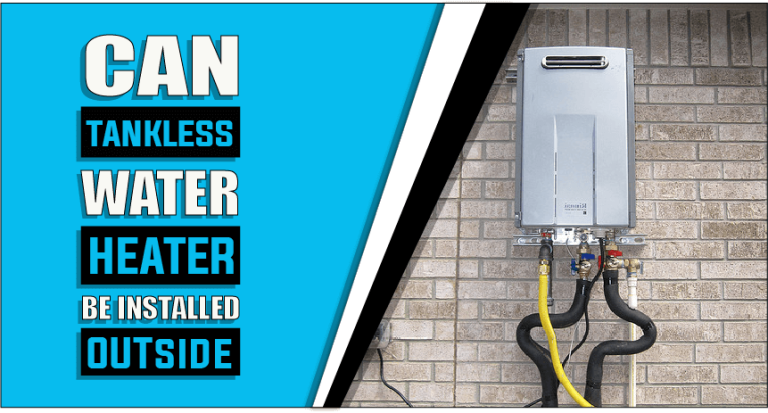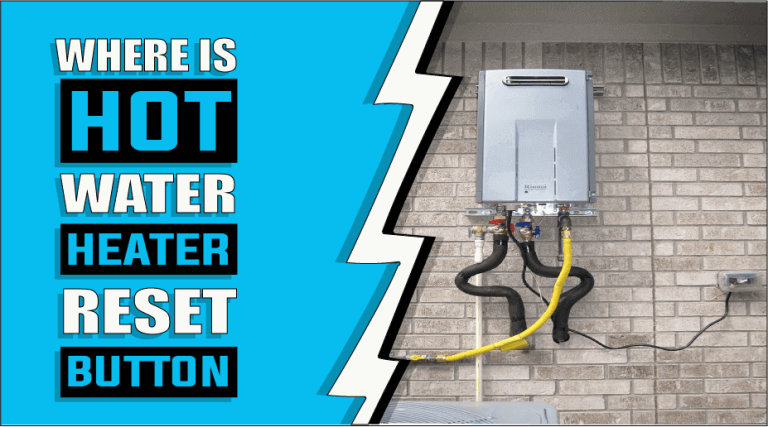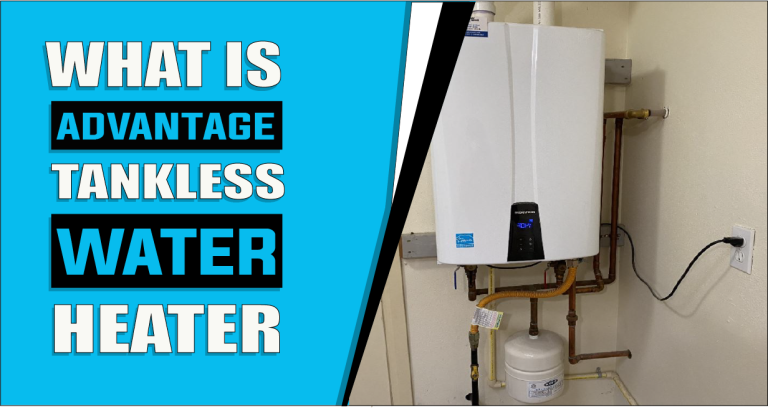What Is The Cost Of A Tankless Water Heater – The Truth Reveals
Are you looking for a cost-effective way to provide hot water to your home or business? If you’re considering a tankless water heater, you’re making an accurate decision. Tankless water heaters are quickly becoming one of the most popular choices among homeowners and business owners alike due to their increased efficiency over traditional models. From saving on both energy and space to longer lifespans they are equipped with innumerable benefits. But before you take the leap and invest in a new tankless water heater, you may have some questions like what is the cost of a tankless water heater? Well, read ahead! In this blog post, we’ll help break down what goes into pricing tankless water heating systems and provide you with all the information necessary so that you feel comfortable making an informed purchase decision about whether it’s worth investing in this energy-efficient solution.
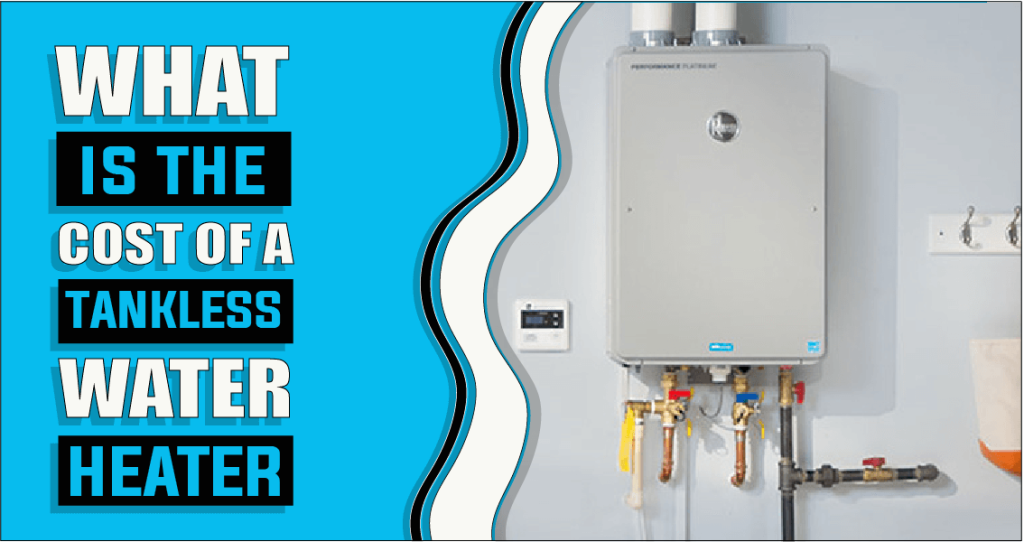
Let’s explore what is the cost of a tankless water heater
A tankless water heater is a modern heating system designed to provide hot water on demand. It works by using an electronic ignition system to heat a coil of metal or ceramic, which heats the water as it passes through the pipe. Tankless water heaters can cost anywhere from $1,000 to $2,000 depending on their size and efficiency rating. The most common size is between 18 and 20kW, which tends to be the least costly. However, some high-efficiency models may cost up to $3,000 or more.
Additionally, installation costs must be accounted for when considering the total cost of a tankless water heater. Installation costs are typically around $500 but can range anywhere from $200 to $2,000 depending on the difficulty of installing them in your home. Some tankless water heaters also require regular maintenance and servicing to keep them functioning properly, so there are additional ongoing costs associated with ownership that should be taken into account as well.
- Cost On Average $800
- Maximum Price $3,000 or more
- Cheapest $150
Calculating the Cost of a Tankless Water Heater
When it comes to tankless water heater installation, the cost can vary greatly based on numerous factors. From the type of system, single-point or whole-house, and fuel source you choose to labor costs, permits required and accessibility issues that may arise during the removal of your old boiler; all these elements come into play when determining how much a new tankless heating solution will set you back.
1: TYPE OF THE SYSTEM
When it comes to calculating the cost of a tankless water heater, one of the primary factors is the type of system. The two most common types are single-point and whole-house systems.
- Single-point
Single-point systems are typically used to provide hot water for one fixture or appliance at a time. These cost between $150 and $300 per and are simple for a professional to install. They are designed to provide instant hot water on demand and are also much smaller than whole-house systems and can be mounted underneath a sink, on an interior wall, or even outside the home. Thus single-point systems are ideal for those looking for a more affordable option without sacrificing quality or convenience.
- Whole-house
Whole-house tankless water heaters, in contrast, cost between $500 to $1,500. They provide enough hot water to supply multiple showers and fixtures simultaneously and require more installation space but offer greater flexibility in terms of being able to adjust the temperature throughout different areas of the home. Whole-house systems are also more energy efficient since they only need to heat up once rather than continuously running as traditional tank water heaters do.
Additionally, they have fewer maintenance needs as they don’t need regular refilling like tanks do and can last up to 20 years depending on usage and other factors. Despite their higher upfront costs, many people find that these systems save them money over time due to their increased efficiency and lower maintenance costs when compared with traditional tank models.
2: FUEL SOURCE
There are four primary types of fuel sources available for tankless water heaters to choose from including gas, electric, propane, and solar power.
- Natural Gas Tankless Water Heaters
Installation fees for tankless gas or propane water heaters range from $1,000 to $1,500. Water heaters powered by natural gas are a popular option and perform well in chilly climates. These heaters depend on a utility supply line, and the typical annual operating expense of a natural gas heater is about $200. Tankless gas water heaters have a higher GPM capacity of between 15 and 2 than electric heaters. Larger homes, those who reside in colder climes, and people who use hot water more frequently than average should all utilize gas heaters.
- Propane-powered Units
If you’re looking to reduce your energy costs but don’t have access to a natural gas line, propane tankless water heaters are an excellent choice! Though slightly more expensive than the alternative at $350 per year, they offer an economical solution compared with pricier electric or oil-powered units.
- Electric Tankless Heating Systems
Electric tankless water heaters cost between $450 to $1,500 which makes them potentially worth it. These units do not require any additional fuel source such as gas or propane; thus no additional costs are associated with installation or use. Electric heaters tend to be smaller in size, making them ideal for tighter spaces, and they also have higher energy efficiency ratings than their counterparts which translates into lower monthly bills over time.
- Solar Tankless Water Heaters
Solar-powered tankless hot water systems offer many benefits but due to their high initial cost of $1,000 to $5,000, they may not be suited for all households depending on budget constraints or local climates that don’t get enough direct sunlight throughout the year for optimal performance. Solar-powered systems rely on panels installed on rooftops which collect sunlight energy during daylight hours and then transfer this energy into usable electricity at night when needed most, namely for heating hot showers!
Solar-powered systems are very efficient since they don’t require any additional fuels like natural gas or propane since the sun provides all the power you need, plus you get to enjoy great savings on your monthly utility bills over time if you decide this option is right for you!
3: Flow rate
Another factor to consider when shopping for a tankless water heater is the flow rate or how much hot water can be delivered at once. This is typically measured in gallons per minute (GPM).
The size of your household, the number of bathrooms, and other factors will determine what kind of GPM you need to look for when shopping around. A higher GPM rating will cost more upfront but may be worth it in the long run if you frequently use multiple showers or faucets at once.
Prices for tankless water heaters are broken down below by flow rate.
- 2 to 4 GPM Costs about $200 to $700
- For 5 to 7 GPM $425 to $900
- For 8+ GPM 600 to $2500 or more
4: Labor cost
The labor cost associated with installing a tankless water heater is one of the primary factors to consider when calculating the overall cost. Hiring a professional contractor for the job is recommended to ensure that it is done correctly and safely. The cost of labor may vary depending on the complexity of the installation, as well as local market rates in your area. For instance, in some regions of the country, it may be more expensive due to higher wages and increased demand for skilled labor.
In general, basic installations can involve several hours of work, ranging from 3 to 6 hours or more depending on how complex the setup is and how much time is needed for certain tasks such as soldering pipes, running new gas lines, and other related activities. Generally, homeowners should expect to pay between $45 and $150 per hour for additional labor costs over and above the initial cost of purchasing the water heater itself.
5: Removal of the current heating system
If you are replacing an existing water heater, then the cost of tankless water heater installation may include the cost to remove the old system. This cost can vary significantly depending on how difficult it is to access and take down the existing unit. In some cases, removal costs about $500 or more if additional work such as patching drywall is needed. And make sure the price offered for the installation includes the removal and disposal of your present water heater when comparing installation prices.
6: Permits
In some localities, permits may be required for installing new water heaters and this cost should be included in the overall cost calculations when it comes to the cost of tankless water heater installation. The cost of a permit can vary from jurisdiction to jurisdiction but typically falls somewhere between $50-$150 depending on the area you live in.
Additional charge factors affecting tankless water heater
When it comes to budgeting for a tankless water heater, numerous factors can affect the final cost. From electrical work and insulation to gas line installation or structural modifications, all these elements must be taken into account before deciding on which model is right for you, power vent or direct vent. Condensing versus non-condensing type also plays an important role in determining overall expense.
1: Electrical Updates
Electrical updates, such as rewiring or replacing circuits and outlets, may be necessary depending on the size of the unit and existing wiring in the home.
2: Insulation
Beat the chill and save money with a tankless water heater! With proper insulation, your pipes could be prepared for winter in no time. Though installing may require additional materials like pipelines or electrical components which can cost around $10 per foot, you’ll still come out ahead when it comes to energy savings, especially if you live somewhere cold where pipe insulating is necessary. Plumbers charge around $45-150 per hour so make sure to budget accordingly depending on how complicated your setup will be!
3: Gas Line Installation
Tankless gas water heaters can save you money in the long run, but they may cost more upfront. Not only do they take longer and require greater effort to install. Sometimes these units involve running an additional gas line, which adds to installation costs of up to $800! Remember that these heaters come with restrictions on where exactly they should be placed for optimum performance; if venting outside is necessary, this must be taken into account when deciding your spot of choice.
4: Structural Modifications
If you plan on installing a tankless water heater in your home, consider if any structural adjustments are necessary. Older homes may require special permits for building cabinets to house the new unit but don’t forget to double-check with your contractor as certain plumbing or electrical permits can cover these modifications!
5: Power Vent vs. Direct Vent
Power Vent vs. Direct Vent is an important factor to consider when determining the cost of a tankless water heater. A power vent will typically use a fan to help exhaust combustion gases, while a direct vent uses either natural draft or powered fans to bring in outside air and exhaust flue gases. Power vents are generally more expensive due to the extra energy cost needed for operation, but can also provide more versatility as they can be installed away from the home and reduce noise levels.
On the other side, direct vents require installation near an exterior wall with access to fresh air and proper ventilation but may be more efficient at lower temperatures since there is less heat loss through the venting system.
6: Condensing vs. Non-Condensing
Condensing models offer greater efficiency but tend to be more costly than non-condensing models due to their higher upfront costs and additional components required for operation. Condensing models are designed with secondary heat exchangers that capture additional heat from the flue gases that would otherwise be wasted, resulting in higher energy efficiency ratings of up to 98%.
Non-condensing models, in contrast, do not have secondary heat exchangers, so they rely solely on their primary burner for energy efficiency ratings which range from 65% – 85%. While non-condensing units may initially appear cheaper than condensing units, they often require frequent maintenance and repair which can quickly add up over time.
Benefits of Tankless Water Heater
Ditch the clunkiness of traditional water heaters and enjoy instant hot showers with tankless! Enjoy infinite, uninterrupted relief from never-ending bills since these energy-efficient marvels only fire up when you need them. So take a plunge into toasting temperature and say goodbye to hefty electricity fees for good!
1: Space Saving
One of the greatest benefits of tankless water heaters is that they are space-saving. Tankless water heaters are much smaller than traditional storage tank units, making them ideal for homes with limited space. Additionally, they can be installed virtually anywhere in your home since they don’t need to be located above ground. This makes them great for areas like attics and crawls spaces.
2: Safe to Use
Tankless water heaters are also incredibly safe to use. They lack bulky tanks that could potentially cause deadly gas leaks or corrosion over time, reducing safety hazards significantly for homeowners.
3: Efficient And Energy Saving
Plus, their energy-saving components make them more efficient than traditional models. Tankless water heaters only supply hot water when you need it instead of constantly consuming energy to maintain a certain temperature in a large tank all day long. This leads to less wasted energy and lower utility bills overall.
4: Long Lasting
Tankless water heaters can last almost twice as long as traditional storage tank models, with life spans ranging between 15-20 years. This longevity makes them cost-effective investments in the long run since you won’t have to replace the system for much longer than a typical storage tank unit.
5: Easy To Maintain
When properly maintained, tankless water heaters can last up to twice as long as storage models. This is because they have fewer moving parts and no standing water inside the unit which eliminates potential problems caused by sediment buildup or corroded tanks over time. Furthermore, a standard filter change every 3-4 months should be enough to keep them running smoothly year-round with no issues.
Frequently Asked Questions
Yes, tankless water heaters cost more upfront than traditional storage models but are cost-effective in the long run due to their energy efficiency and longevity. Additionally, they don’t require frequent maintenance like other tank models which can help save money on repair costs over time.
The cost of a tankless water heater can range widely depending on the type and size you need. Installation costs can also vary depending on the complexity of the job and the cost of materials.
The cost of tankless water heaters is typically higher than traditional models which can be a deterrent for some people. Additionally, their initial installation cost can also be more expensive since additional parts may be required depending on the model and system.
The most common issue with tankless water heaters is improper installation. If the unit isn’t installed correctly, it can lead to some problems like decreased performance and unreliable hot water supply. This is why it’s important to hire a professional to properly install your tankless system for the best results.
The cost of converting to a tankless water heater varies based on the size and type of unit you choose. However, installation costs usually range between $1,000-$3,000 depending on your home’s layout and existing system. It’s wise to consult with a local professional before undergoing this process to get an accurate cost estimate.
Conclusion
We hope you found this article useful in answering the question: what is the cost of a tankless water heater? Tankless water heaters cost more upfront than traditional storage models but are cost-effective in the long run due to their energy efficiency and longevity. Furthermore, they don’t require frequent maintenance like other tank models which can help save money on repair costs over time. Moreover, installation costs can vary depending on the complexity of the job and the cost of materials. If you’re considering a tankless water heater for your home, it’s wise to consult with a local professional before undergoing this process to get an accurate cost estimate.
Ella John is passionate about helping her readers make the best choice when purchasing a heater. She understands that selecting a heater can be difficult and strives to provide information to help make the decision easier. Ella’s website, Heatersinfo.com, provides valuable insight into heating trends and types of heaters and tips on how to care for them. She also advises selecting the right heater based on individual needs and preferences. Her expertise in electronics makes her an excellent source of knowledge, and she is confident that anyone who visits her website will find the perfect heater information for their needs. Ella’s dedication to helping others make educated decisions about buying the right heater is unparalleled, and she hopes to continue offering her expertise for many years. With Ella’s help, finding the perfect heater can be a breeze!

